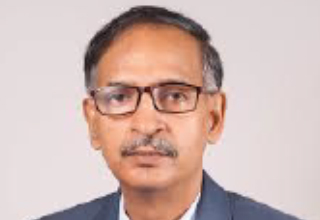
Dr. Pooran Chandra Pandey
Resident Representative, Climate Scorecard
Founding CEO of ‘Dialogue of Civilizations Research Institute,’ a Berlin, Germany based international think tank (2016), contributor to Springer Nature’s global encyclopedia on sustainable development goals (2020) and supplemental policy advisor to governments in China, Germany and Rwanda (2018 onwards), Pooran Chandra Pandey currently serves Resident Representative of Climate Scorecard, a US Climate Policy think tank besides being member of the boards of United Nations World Food Programme Trust (2016 onwards) and SOENT group ( 2018 onwards), a European policy consulting firm. Previously, he served in senior leadership positions at Nippon Ispat, Bennett, Coleman and Company (The Times of India) and the United Nations.
His professional work on issues related to sustainability, circular design, sustainable development, climate change and international treaties, environmental policies, multilateralism, international project collaboration, energy transition, private sector and Development cooperation transcends geographies around and across Asia, Africa and Europe and stands referred to and widely quoted nationally, regionally and internationally.
In addition to serving special committees on sustainable development, sustainability, industrial water and human rights of the UN both in New York and Geneva, Pooran also chaired and served on committees of Planning Commission (now NITI Aayog), Ministry of Environment, Forest and Climate Change, Ministry of Programme Implementation and Statistics, Ministry of Corporate Affairs and Bureau of Indian Standards. He has also been chairing social audit committee of the ACC Limited, one of the largest cement companies for last 5 years.
He also conceived and led large framework projects with DVN GL, KPMG, E&Y, Accenture and Deloitte on industrial water, sustainability and circular economy leading the world’s largest UN- Accenture Global CEO Survey on Sustainability (2013) and subsequently introducing India version of the global sustainability report (2014). Pooran also authored the first report on sustainable development goals for the UN Global Compact, New York (2014) and drafted first sustainability report for Rapid Metro (2015).
Editing perhaps the first book on sustainable development – Leaving No One Behind: Sustainable Development Goals and South-South Cooperation (2018) and published by NITI Aayog, Pooran has more than 20 policy publications, 05 books, 10 reports and host of opinion pieces, editorials and special reports to his credit. A climate reality leader (2015), personally, trained by Al Gore, former US vice president and a noble peace laureate, he has worked in leadership roles in India, Great Britain and Germany.
Pooran holds an MPhil degree in International Studies from Jawaharlal Nehru University, New Delhi besides being trained at Asian Productivity Organization, Japan (2003), United Nations in New York (2015), Swedish Institute (2011) in Stockholm and UNEP-Tongji Institute on Environment for Sustainable Development (2019), Shanghai.
He is also a Chevening Scholar at London School of Economics and Political Science, London.
Besides, Pooran is a visiting professor at Rhodes Forum, Greece, Bejing Forum, China, Oslo University, Finland, UTS Sydney, Australia and Copenhagen Business School, Denmark in areas covering sustainability, circular economy, climate change and sustainable development. He also serves on editorial boards and academic committees of Management Development Institute, Tripura and Manipur Universities. He is currently working on a book – Sustainable
Development Goals: Private Sector Action on Climate for Public Good- with a leading international publishing house due out in early 2021.
Pooran is currently leading a high level panel on ‘circular design and future of sustainability’ for Swedish Institute, Stockholm under the ministry of foreign affairs of the Swedish Government.
Pooran is well travelled, writing and speaking at key forums in India and internationally on contemporary public policy issues and new development agendas shaping our local communities and global societies.